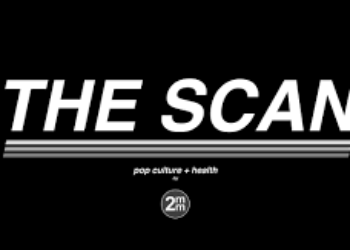Single dose mass vaccination against COVID-19 is linked with reductions in hospital admissions
1. The initial doses of the Pfizer and AstraZeneca vaccines were 91% and 88% efficacious in reducing COVID-19 hospitalizations one month after vaccination.
2. Combined vaccine efficacy of the Pfizer and AstraZeneca in preventing hospital admission due to COVID-19 among those aged 80 years and older was approximately 83%.
Evidence Rating Level: 2 (Good)
Study Rundown: At the time of this publication, the COVID-19 pandemic continues to burden healthcare systems worldwide. In many countries, the demand for vaccines surpasses the available supply. To work around the low vaccine availability, some regions have opted for a first-dose mass vaccination program with a delayed second dose rather than the recommended two-dose regimen with vaccines given three weeks apart. However, the long-term efficacy of various COVID-19 vaccines after a single dose is still largely unknown. In this observational study, the effectiveness of a first dose of either the BNT162b2 mRNA (Pfizer-BioNTech) or ChAdOx1 nCoV-19 (Oxford-AstraZeneca) vaccine in preventing hospital admissions was investigated. This study found that the Pfizer and AstraZeneca vaccines were approximately highly effective in reducing COVID-19-related hospitalizations at approximately one month after the first dose. Overall, this study reports the effectiveness of a single dose mass vaccination program in over one million vaccinated individuals. Nevertheless, the observational nature of this study inclines the results to be confounded by ecological and temporal effects.
Click to read the study in the Lancet
Relevant Reading: Mass-Vaccination Sites — An Essential Innovation to Curb the Covid-19 Pandemic
In-Depth [prospective cohort]: This study utilized a prospective cohort structure to enroll 1,331,993 subjects between Dec 8, 2020, and Feb 22, 2021. Notably, all those having previously tested positive for COVID-19 were excluded. Treatment exposure was defined as receiving a single dose of either the BNT162b2 mRNA (Pfizer-BioNTech) or ChAdOx1 nCoV-19 (Oxford-AstraZeneca) vaccine between Dec 8, 2020, and Feb 22, 2021. The main outcome was hospital admissions due to COVID-19, or any hospital admission within 28 days of a positive COVID PCR test between Dec 8, 2020, to Feb 22, 2021. Cox models and Poisson regressions were utilized with respective covariates (e.g. comorbidity, smoking status, socioeconomic status etc.); further analyses were utilized to assess certain age groups (18-64, 65-79, >80 yo). A downturn in admissions was observed before the vaccination rollout however further modeling attempted to assess the isolated effects. Vaccine effect at 28-34 days after vaccination led to a reduction in COVID-19 hospital admissions (Pfizer 91% [95% CI 85-94], AstraZeneca 88% [95% CI 75-94]). In a pooled analysis of both vaccines, similar findings were observed among patients aged 18-64 years (92%, 95% CI 82-97), 65-79 years (93%, 95% CI 73-98), and those aged 80 years or older (83%, 95% CI 72-89).
Image: PD
©2021 2 Minute Medicine, Inc. All rights reserved. No works may be reproduced without expressed written consent from 2 Minute Medicine, Inc. Inquire about licensing here. No article should be construed as medical advice and is not intended as such by the authors or by 2 Minute Medicine, Inc.






